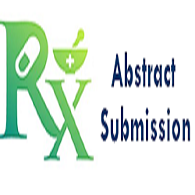Infectious Diseases
Infectious diseases are illnesses caused by pathogenic microorganisms such as viruses, bacteria, parasites, or fungi that can be transmitted from one person to another either directly or indirectly (vector-borne). The invasion of disease-causing pathogens into an organism's body tissues, their growth, and the host tissues' response to the infectious agents and the toxins they produce are all considered to be infections. A condition brought on by an infection is referred to as an infectious disease, often known as a transmissible or communicable sickness. There are many different pathogens that can cause infections, but bacteria and viruses are the most prevalent ones. Hosts' immune systems can aid in their ability to combat disease. The medical specialty that deals with infections is referred to as infectious disease.
- Influenza
- Cryptosporidiosis
- Vector-Borne Diseases
- Legionnaires’ Disease
- Human Metapneumovirus
- Antibiotic-Resistant Diseases
- Valley Fever
- Immunity and Infectious Diseases
Related Conference of Infectious Diseases
21th International Conference on Allergic Diseases and Clinical Immunology
13th World Congress and Exhibition on Antibiotics and Antibiotic Resistance
Infectious Diseases Conference Speakers
Recommended Sessions
- Modern Antibiotics for Various Diseases and Infections
- Antibiotic Prophylaxis
- Antibiotic Resistance: Opportunities and Challenges
- Antibiotic-resistant Bacterial infections
- Antibiotics
- Antibiotics for Various Diseases and Infections
- Antibiotics: In Pregnancy and Lactation
- Antimicrobial Peptides
- Antimicrobial Therapy
- Clinical Trials of Antibiotics
- Current Research in Antibiotic Resistance
- Developing Alternatives to Antibiotics
- Drug Discovery and Novel Delivery Technologies
- Immunology & Vaccines
- Infectious Diseases
- Mechanisms and Evolution of Antibiotic Resistance
- Micro Organisms in Recent Drug Discovery
- Microorganisms Producing Antibiotics
- New antibiotics and non-antibiotic approaches
- Pharmacokinetics and Pharmacodynamics of Antimicrobial Drugs
- Pharmacology & Toxicology
- Prevention and Control of Antibiotic Resistance
- The Next Generation Approach of Antibiotics
Related Journals
Are you interested in
- Adaptive Immunity, Memory Formation & T-Cell Engineering - European Immunology 2026 (France)
- Allergy, Hypersensitivity & Immune Tolerance - Immunology 2026 (France)
- Allergy, Hypersensitivity & Immune Tolerance Strategies - European Immunology 2026 (France)
- Antibiotic Prophylaxis - Antibiotics 2026 (UK)
- Antibiotic Resistance: Opportunities and Challenges - Antibiotics 2026 (UK)
- Antibiotic-resistant Bacterial infections - Antibiotics 2026 (UK)
- Antibiotics - Antibiotics 2026 (UK)
- Antibiotics for Various Diseases and Infections - Antibiotics 2026 (UK)
- Antibiotics: In Pregnancy and Lactation - Antibiotics 2026 (UK)
- Antimicrobial Peptides - Antibiotics 2026 (UK)
- Antimicrobial Therapy - Antibiotics 2026 (UK)
- Autoimmune & Inflammatory Disorders - Immunology 2026 (France)
- Autoimmunity Mechanisms & Precision Immunoregulation - European Immunology 2026 (France)
- Cancer Immunology & Tumor Microenvironment - Immunology 2026 (France)
- Cellular Signaling & Cell Fate Determination - Immunology 2026 (France)
- Clinical and Translational Immunology - Immunology 2026 (France)
- Clinical Trials of Antibiotics - Antibiotics 2026 (UK)
- Computational Immunology, AI Modeling & Immune System Simulation - European Immunology 2026 (France)
- Current Research in Antibiotic Resistance - Antibiotics 2026 (UK)
- Cytokine Signaling Networks & Immune Modulation - European Immunology 2026 (France)
- Developing Alternatives to Antibiotics - Antibiotics 2026 (UK)
- Drug Discovery and Novel Delivery Technologies - Antibiotics 2026 (UK)
- Immune Cell Reprogramming & Gene-Edited Immunotherapies - European Immunology 2026 (France)
- Immunogenetics & Epigenetic Regulation - Immunology 2026 (France)
- Immunology & Vaccines - Antibiotics 2026 (UK)
- Immunometabolism - Immunology 2026 (France)
- Immunometabolism & Cellular Energy Dynamics - European Immunology 2026 (France)
- Immunotherapy & Immune Modulation - Immunology 2026 (France)
- Infectious Diseases - Antibiotics 2026 (UK)
- Infectious Diseases & Host–Pathogen Interactions - Immunology 2026 (France)
- Inflammation Biology & Chronic Immune Disorders - European Immunology 2026 (France)
- Innate and Adaptive Immune Mechanisms - Immunology 2026 (France)
- Innate Immune Sensors, Pattern Recognition & Host Defense - European Immunology 2026 (France)
- Innovations in Cell Biology & Imaging Technologies - Immunology 2026 (France)
- Mechanisms and Evolution of Antibiotic Resistance - Antibiotics 2026 (UK)
- Micro Organisms in Recent Drug Discovery - Antibiotics 2026 (UK)
- Microbiome–Immune Axis & Host Interaction Pathways - European Immunology 2026 (France)
- Microorganisms Producing Antibiotics - Antibiotics 2026 (UK)
- Modern Antibiotics for Various Diseases and Infections - Antibiotics 2026 (UK)
- Molecular & Cellular Immunology - Immunology 2026 (France)
- Mucosal Immunity & Barrier Protection Mechanisms - European Immunology 2026 (France)
- Nanotechnology-Enabled Immune Delivery Systems - European Immunology 2026 (France)
- Neuroimmunology & Brain–Immune Interactions - Immunology 2026 (France)
- New antibiotics and non-antibiotic approaches - Antibiotics 2026 (UK)
- Next-Generation Vaccines & Antigen Engineering - European Immunology 2026 (France)
- Pharmacokinetics and Pharmacodynamics of Antimicrobial Drugs - Antibiotics 2026 (UK)
- Pharmacology & Toxicology - Antibiotics 2026 (UK)
- Prevention and Control of Antibiotic Resistance - Antibiotics 2026 (UK)
- Stem Cells & Regenerative Immunology - Immunology 2026 (France)
- The Next Generation Approach of Antibiotics - Antibiotics 2026 (UK)
- Tumor Immunology & Personalized Cancer Immunotherapies - European Immunology 2026 (France)
- Vaccines & Vaccine Technology - Immunology 2026 (France)
- Viral Immunology, Emerging Pathogens & Host Response - European Immunology 2026 (France)

